| Listing 1 - 9 of 9 |
Sort by
|
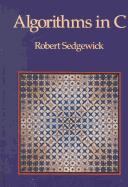
ISBN: 0805304924 Year: 1990 Publisher: Redwood City New York Amsterdam Benjamin-Cummings
Abstract | Keywords | Export | Availability | Bookmark
 Loading...
Loading...Choose an application
- Reference Manager
- EndNote
- RefWorks (Direct export to RefWorks)
COMMON LISP (Computer program language) --- COMMON LISP (Langage de programmation) --- COMMON LISP (Programmeertaal) --- Common Lisp (Langage de programmation) --- 681.3*D32 --- Functional programming languages --- Object-oriented programming languages --- language classifications: applicative languages; data-flow languages; design languages; extensible languages; macro and assembly languages; nonprocedural languages; specialized application and very high-level languages (Programminglanguages) --- 681.3*D32 language classifications: applicative languages; data-flow languages; design languages; extensible languages; macro and assembly languages; nonprocedural languages; specialized application and very high-level languages (Programminglanguages)
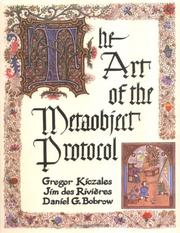
ISBN: 0262610744 9780262610742 Year: 1991 Publisher: Cambridge, Mass.: MIT Press,
Abstract | Keywords | Export | Availability | Bookmark
 Loading...
Loading...Choose an application
- Reference Manager
- EndNote
- RefWorks (Direct export to RefWorks)
COMMON LISP (Computer program language) --- COMMON LISP (Langage de programmation) --- COMMON LISP (Programmeertaal) --- Object-georiënteerd programmeren (Informatica) --- Object-oriented programming (Computer science) --- Programmation par objets (Informatique) --- COMMON LISP (Computer program language). --- Object-oriented programming (Computer science). --- Common LISP (langage de programmation) --- Programmation orientée objets (informatique) --- Computer programming --- Object-oriented methods (Computer science) --- Document Object Model (Web site development technology) --- Functional programming languages --- Object-oriented programming languages
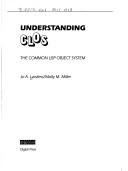
ISBN: 1555580645 013717232X Year: 1991 Publisher: Bedford, Massachusetts : Digital Press,
Abstract | Keywords | Export | Availability | Bookmark
 Loading...
Loading...Choose an application
- Reference Manager
- EndNote
- RefWorks (Direct export to RefWorks)
COMMON LISP (Computer program language) --- Object-oriented programming (Computer science) --- Computer programming --- Object-oriented methods (Computer science) --- Document Object Model (Web site development technology) --- Functional programming languages --- Object-oriented programming languages --- Programmation orientée objets (informatique) --- Common LISP (langage de programmation) --- Programmation orientée objets (informatique)
Book
ISBN: 0201114585 Year: 1988 Publisher: Reading (Mass.) : Addison-Wesley,
Abstract | Keywords | Export | Availability | Bookmark
 Loading...
Loading...Choose an application
- Reference Manager
- EndNote
- RefWorks (Direct export to RefWorks)
Programming --- COMMON LISP (Computer program language) --- Common Lisp (Langage de programmation) --- 681.3*D32 --- Functional programming languages --- Object-oriented programming languages --- language classifications: applicative languages; data-flow languages; design languages; extensible languages; macro and assembly languages; nonprocedural languages; specialized application and very high-level languages (Programminglanguages) --- COMMON LISP (Computer program language). --- 681.3*D32 language classifications: applicative languages; data-flow languages; design languages; extensible languages; macro and assembly languages; nonprocedural languages; specialized application and very high-level languages (Programminglanguages)
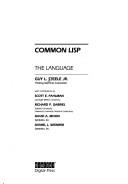
ISBN: 093237641X 9780932376411 Year: 1984 Publisher: Burlington, MA: Digital Press,
Abstract | Keywords | Export | Availability | Bookmark
 Loading...
Loading...Choose an application
- Reference Manager
- EndNote
- RefWorks (Direct export to RefWorks)
COMMON LISP (Computer program language) --- Common Lisp (Langage de programmation) --- 681.3*D32 --- Functional programming languages --- Object-oriented programming languages --- language classifications: applicative languages; data-flow languages; design languages; extensible languages; macro and assembly languages; nonprocedural languages; specialized application and very high-level languages (Programminglanguages) --- COMMON LISP (Computer program language). --- 681.3*D32 language classifications: applicative languages; data-flow languages; design languages; extensible languages; macro and assembly languages; nonprocedural languages; specialized application and very high-level languages (Programminglanguages) --- LISP (Computer program language)
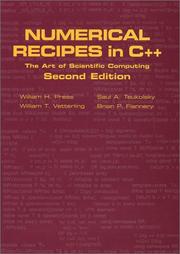
ISBN: 0521750334 0521750342 0521750350 Year: 2002 Publisher: Cambridge : Cambridge university press,
Abstract | Keywords | Export | Availability | Bookmark
 Loading...
Loading...Choose an application
- Reference Manager
- EndNote
- RefWorks (Direct export to RefWorks)
Now the acclaimed Second Edition of Numerical Recipes is available in the C++ object-oriented programming language. Including and updating the full mathematical and explanatory contents of Numerical Recipes in C, this new version incorporates completely new C++ versions of the more than 300 Numerical Recipes routines that are widely recognized as the most accessible and practical basis for scientific computing. The product of a unique collaboration among four leading scientists in academic research and industry, Numerical Recipes is a complete text and reference book on scientific computing. In a self-contained manner it proceeds from mathematical and theoretical considerations to actual practical computer routines. Highlights include linear algebra, interpolation, special functions, random numbers, nonlinear sets of equations, optimization, eigensystems, Fourier methods and wavelets, statistical tests, ODEs and PDEs, integral equations and inverse theory. The authors' approach to C++ preserves the efficient execution that C users expect, while simultaneously employing a clear, object-oriented interface to the routines. Tricks and tips for scientific computing in C++ are liberally included. The routines, in ANSI/ISO C++ source code, can thus be used with almost any existing C++ vector/matrix class library, according to user preference. A simple class library for stand-alone use is also included in the book. Both scientific programmers new to C++, and experienced C++ programmers who need access to the Numerical Recipes routines, can benefit from this important new version of an invaluable, classic text.
Programming --- Numerical analysis --- BASIC (Computer program language) --- C (Computer program language) --- COMMON LISP (Computer program language) --- FORTRAN (Computer program language) --- Modula-2 (Computer program language) --- PASCAL (Computer program language) --- Analyse numérique --- BASIC (Langage de programmation) --- C (Langage de programmation) --- Common Lisp (Langage de programmation) --- FORTRAN (Langage de programmation) --- Modula-2 (Langage de programmation) --- PASCAL (Langage de programmation) --- Computer programs --- Logiciels --- C++ (Computer program language) --- C++ (Langage de programmation) --- AA / International- internationaal --- 303.0 --- Statistische technieken in econometrie. Wiskundige statistiek (algemene werken en handboeken). --- Numerical analysis. --- C++ (Computer program language). --- Analyse numérique --- EPUB-ALPHA-N EPUB-BDD-TXT BDDINFOR --- Mathematical analysis --- Statistische technieken in econometrie. Wiskundige statistiek (algemene werken en handboeken)
Book
ISBN: 0932376878 Year: 1987 Publisher: Bedford, Mass. Digital Press
Abstract | Keywords | Export | Availability | Bookmark
 Loading...
Loading...Choose an application
- Reference Manager
- EndNote
- RefWorks (Direct export to RefWorks)
Programming --- Artificial intelligence. Robotics. Simulation. Graphics --- COMMON LISP (Computer program language) --- 681.3*D32 --- Functional programming languages --- Object-oriented programming languages --- language classifications: applicative languages; data-flow languages; design languages; extensible languages; macro and assembly languages; nonprocedural languages; specialized application and very high-level languages (Programminglanguages) --- COMMON LISP (Computer program language). --- 681.3*D32 language classifications: applicative languages; data-flow languages; design languages; extensible languages; macro and assembly languages; nonprocedural languages; specialized application and very high-level languages (Programminglanguages) --- Common Lisp (Langage de programmation)
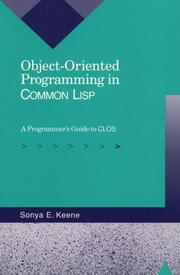
ISBN: 0201175894 9780201175899 Year: 1989 Publisher: Reading (Mass.) : Addison-Wesley,
Abstract | Keywords | Export | Availability | Bookmark
 Loading...
Loading...Choose an application
- Reference Manager
- EndNote
- RefWorks (Direct export to RefWorks)
COMMON LISP (Computer program language) --- Object-oriented programming (Computer science) --- Common Lisp (Langage de programmation) --- Programmation orientée objet (Informatique) --- 681.3*D20 --- 681.3*D32 --- Computer programming --- Object-oriented methods (Computer science) --- Document Object Model (Web site development technology) --- Functional programming languages --- Object-oriented programming languages --- Computerwetenschap--?*D20 --- language classifications: applicative languages; data-flow languages; design languages; extensible languages; macro and assembly languages; nonprocedural languages; specialized application and very high-level languages (Programminglanguages) --- COMMON LISP (Computer program language). --- Object-oriented programming (Computer science). --- 681.3*D32 language classifications: applicative languages; data-flow languages; design languages; extensible languages; macro and assembly languages; nonprocedural languages; specialized application and very high-level languages (Programminglanguages) --- Programmation orientée objet (Informatique)
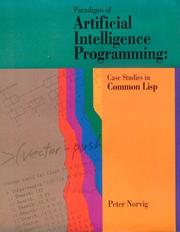
ISBN: 1558601910 9781558601918 0080571158 1322465649 Year: 1992 Publisher: San Mateo, Calif. Morgan Kaufman
Abstract | Keywords | Export | Availability | Bookmark
 Loading...
Loading...Choose an application
- Reference Manager
- EndNote
- RefWorks (Direct export to RefWorks)
Programming --- Artificial intelligence. Robotics. Simulation. Graphics --- Computer programming. --- COMMON LISP (Computer program language) --- Artificial intelligence. --- Programmation (Informatique) --- Common Lisp (Langage de programmation) --- Intelligence artificielle --- Artificial intelligence --- Computer programming --- 681.3*D1 --- 681.3*D32 --- 681.3*I2 --- Computers --- Electronic computer programming --- Electronic data processing --- Electronic digital computers --- Programming (Electronic computers) --- Coding theory --- AI (Artificial intelligence) --- Artificial thinking --- Electronic brains --- Intellectronics --- Intelligence, Artificial --- Intelligent machines --- Machine intelligence --- Thinking, Artificial --- Bionics --- Cognitive science --- Digital computer simulation --- Logic machines --- Machine theory --- Self-organizing systems --- Simulation methods --- Fifth generation computers --- Neural computers --- Functional programming languages --- Object-oriented programming languages --- Programming techniques--See also {681.3*E} --- language classifications: applicative languages; data-flow languages; design languages; extensible languages; macro and assembly languages; nonprocedural languages; specialized application and very high-level languages (Programminglanguages) --- Artificial intelligence. AI --- 681.3*I2 Artificial intelligence. AI --- 681.3*D32 language classifications: applicative languages; data-flow languages; design languages; extensible languages; macro and assembly languages; nonprocedural languages; specialized application and very high-level languages (Programminglanguages) --- 681.3*D1 Programming techniques--See also {681.3*E}
| Listing 1 - 9 of 9 |
Sort by
|

 Search
Search Feedback
Feedback About UniCat
About UniCat  Help
Help News
News